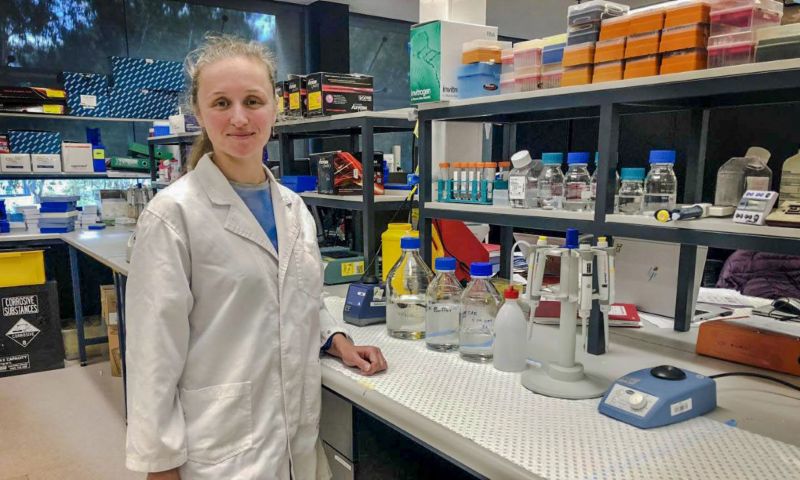Philanthropic support is helping to improve outcomes for infants injured around the time of birth.
A substantial donation from an Australian foundation wishing to improve the lives of babies is enabling RMIT’s Perinatal Brain Injury (PBI) Lab to crack on with its work doing just that.
With secure funding, PBI Lab head Dr Bobbi Fleiss and her team can spend less time writing grant proposals and more time making scientific breakthroughs that benefit children and families all over the world.
It also means they rely less on support from cash-strapped advocacy groups such as the Cerebral Palsy Alliance, the leading source of seed funding for research into cerebral palsy and can instead work more productively with such bodies to achieve outcomes.

“We spend years applying for grants,” said Dr Fleiss. “With this donation, we can just get on and keep our projects moving.”
The PBI Lab has local and international projects investigating the causes and treatment of brain injury in infants during pregnancy and around birth. The causes include pre-term birth, exposure to inflammation in utero, lack of oxygen during birth and neonatal stroke. The lab is also part of a global team researching the effect of environmental contaminants on the developing brain and of the international stem cell regeneration research network, PREMSTEM, developing stem cell therapies for treatment of brain injury caused by preterm birth.
In a ground-breaking project the PBI Lab is working with researchers from around Australia on a hydrogel to treat neonatal stroke. It is investigating the use of compounds isolated from spider venom by Professor Glenn King at the University of Queensland and from seaweed by Tasmanian biotech company Marinova.
As improvements in infant care helped greater numbers of early pre-term babies to survive, the drop in the percentage of babies with perinatal brain injury had plateaued, said Dr Fleiss.
Dr Fleiss’ international experience and networks have put the PBI Lab on the global map. The Lab attracts top talent from around the world, including a high proportion of female STEM experts. Dr Fleiss supervises PhD students in Australia and overseas, in a program where students study on campus at RMIT Melbourne and abroad in their home country, ensuring their expertise is internationally relevant and contributes to their local community.
“I love teaching,” she said. “When your students suddenly ‘get’ something it is an amazing feeling.”
The work often includes advocating for families with complex and compelling needs but few resources to campaign for change.
“Not only is there a cultural stigma associated with having a baby with, say, cerebral palsy, but the time spent caring for their children and negotiating systems such as the National Disability Insurance Scheme, as well as the enormous financial strain on the family, means they have no time for advocacy.”
A physical disability that affects movement and posture, cerebral palsy is diagnosed in 1 in 700 Australian babies. People with cerebral palsy often face discrimination from others who misinterpret their motor disfunction to mean they are affected by alcohol or drugs. The leading cause of cerebral palsy is pre-term birth and associated perinatal brain injury.
One of the first in her family to attend university, Dr Fleiss’ initial degree in microbiology and biotechnology was at an institution she chose because it was close to her family home in Melbourne. Postdoctoral work took her to Europe and the United Kingdom before she joined RMIT as a Vice-Chancellor’s Research Fellow and head of the PBI Lab.
“I imagined myself a biochemist who would help people make yoghurt or beer, but during my honours degree I worked on a research project in predicting pre-term birth and I fell in love with this area of study,” she said
She remains driven by the compelling interest of her work and its demonstrative benefits to babies and families, a motivation that intensified after the birth of her own child.
“Nothing drives home the importance of our work like having a baby in your arms,” Dr Fleiss said.


